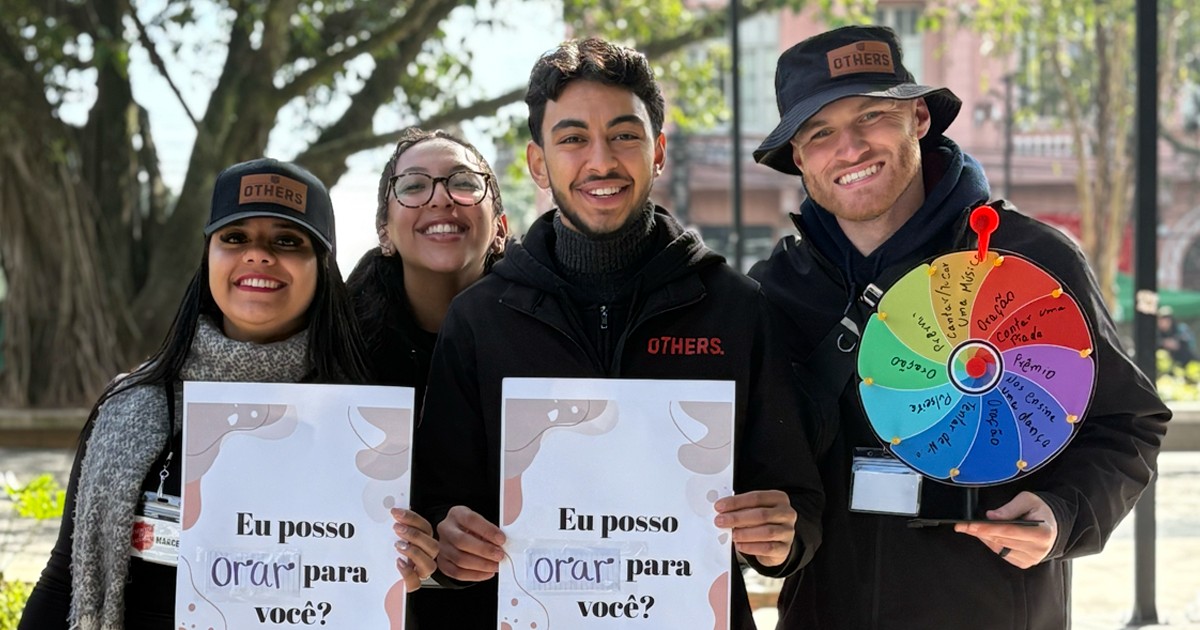NO. Or at least not as much as we think. We need to beware of testing God so that our prayers don't lead to false hope. Miracles don't always manifest themselves in physical ways.
BY MAJOR (DR.) BEVERLEY SMITH
 There have been a host of travesties, shipwrecked faith, and a trail of hurt and broken Christians left in the wake of churches who promote healing miracles within their ministry circle. I remember reading an author who had watched on television a well-known faith healer ostensibly cure someone's husband of cancer. He followed up with the couple a week later, telephoning them at their home. The wife answered the phone with a sharp intake of breath as the author inquired how her husband was doing. She reported that he had died two days after the broadcast of his supposed healing. That was the end of the author's trust in the television healer, and of his faith in Christ as well. Even renowned Christian author C. S. Lewis almost lost his faith when his mother did not recover in response to his childhood prayers begging God for her healing.
There have been a host of travesties, shipwrecked faith, and a trail of hurt and broken Christians left in the wake of churches who promote healing miracles within their ministry circle. I remember reading an author who had watched on television a well-known faith healer ostensibly cure someone's husband of cancer. He followed up with the couple a week later, telephoning them at their home. The wife answered the phone with a sharp intake of breath as the author inquired how her husband was doing. She reported that he had died two days after the broadcast of his supposed healing. That was the end of the author's trust in the television healer, and of his faith in Christ as well. Even renowned Christian author C. S. Lewis almost lost his faith when his mother did not recover in response to his childhood prayers begging God for her healing.
My own father, while welcoming the prayers of his friends and family, declined to be placed on a healing prayer chain when chemotherapy failed to alleviate his lymphoma. He thought that he would be just as happy to take what came from the Lord for good or ill, without dictating to God what that might look like. He passed away months later. I will concede that the Holy Spirit periodically urges us to pray in particular ways for the healing of someone we know. Our fervent prayers influence God's heart, and even change our own hearts on occasion. But sooner or later we just get it wrong, and that can be damaging.
The problem is not God, who is the same wonderful and wonder-working God as before. The problem is in the misplaced faith of his followers, who expect God to come through for them with every illness every time. We want to be shrink-wrapped in a cocoon of comfort, free from the trials of mere mortals. We not only want it, some North American Christians have come to expect it as their right. Noted theologian Dr. John Stott remarked that we often only want to be comforted by God, not challenged or disturbed. Yet illness and death are part of our fallen nature, and are our companions throughout life. The miracles that come are not always the physical healings, but the ways God helps us to cope with illness and death, and the ways he strengthens our faith to believe. Is it possible to come to a place of faith so strong that we can echo Job: “Though he slay me, yet will I trust in him….” (Job 13:15 KJV)? When we place our faith in Christ, our rebirth through resurrection ushers us into a new physical reality so wonderful we can't even begin to imagine it.
I recently read a book called Being Well When We're Ill: Wholeness and Hope In Spite of Infirmity by Marva J. Dawn. It emphasizes that there's a lot more to being well than physical health. It deals in a practical way with some of the frictions to faith that come with chronic illness, the loss of meaning that comes when you can't do what you used to, the frustrations of living in the interface between medical science and illness, and how God keeps faith with us through our pain and limitations.
I wish church congregations would talk more about these things rather than expecting God to always be doing cartwheels for them. I wish they could acknowledge the glimpses of God's grace we see through our hurts and illnesses instead of only focusing on the great gulps of grace we want with physical healing and miracles of other kinds. Marva Dawn makes the point that the way we bear our illness and infirmity is an aspect of our work for God, because people without Christ are watching. Even the Apostle Paul agreed that bearing his thorn in the flesh was in God's permitted will, after he had asked God to take it away three times. And this was from a man whose handkerchiefs were known to heal people (see Acts 19:12). There are great mysteries here.
One of the ways Jesus was tempted in the desert was to expect God to do miracles for him as he threw himself down from the Temple or experienced hunger. Jesus refused. He would not test God (see Luke 4:12). Instead, he pointed each time to the miracle of God's Word, written and spoken. Ministering angels eventually came, but they didn't come until later. In the meantime, Jesus prayed and waited. We, too, experience desert temptations, so we pray and we wait. Signs and wonders are not the only things we wait for (and sometimes mercifully receive). We wait for God.
Major (Dr.) Beverley Smith is a medical practitioner at the Toronto Grace Health Centre.
YES. Who are we to limit God? Many people attest to his wonder-working power. The proof is all around us. It may be hard to believe, but miracles still happen.
BY CAPTAIN GRANT SANDERCOCK-BROWN
I believe in miracles. And not just because a song I learned in childhood commences with that line. I believe in miracles because I see absolutely no reason to disbelieve in them. In fact, the miraculous is an intrinsic part of the Christian faith. So when the editor asked me to give my answer to the question, “Does God still perform signs and wonders today?” I was happy to say yes. And I'm worried when any Christian believes that God has stopped doing so.
I can, however, understand why many Christians have become more timid about stating publicly their belief in miracles. Certainty in a God of signs and wonders has suffered enormously under the critique of rational empiricism. “Science disproves miracles and disproves God.” Or so we are told. Of course science has done no such thing and rational empiricists who say so are mightily exaggerating their case. Aside from the fact that proving a negative—“miracles don't happen”—is notoriously difficult, not everything can be measured and replicated, observed and quantified. Sure, scientists are welcome to speculate on faith, love and grace, and also God and his abilities, but they do so with no more expertise than me. If God is God—truly and properly God—he is able to do anything we can imagine and many things that we can't imagine. If he cannot do so, he is not God.
Indeed the core event of the Christian story, the Resurrection, the sign of signs and wonder of wonders, is beyond our imagining. But its effect is not. A dispirited and scattering bunch of Jesus followers were transformed when they encountered their miraculously risen Lord and the world has never been the same. And so, we believe, and always have done, that Jesus the Christ, the Son of God, died and rose again and now sits at the right hand of God.
However, signs and wonders are out of the ordinary. Hence the name. And the out of the ordinary is hard to believe. But it still happens. God's power was not exhausted in the apostolic age nor has our need of a miracle-working God diminished. I have met many people who testify to God's miraculous intervention in their lives. I know people who have been healed. I have heard people, under the influence of the Holy Spirit, speak prophetically to their communities. Have there been charlatans? Yes. Have some been too quick to label their own thoughts as a prophecy of God? Absolutely. That does not mean that God has stopped working. It just means that we must be discerning. But that has always been the case for the Christian family. It's why Paul mentions the gift in his correspondence with “signs and wonders central,” the Corinthian Church.
Questions about signs, wonders, prophecy and healing are really questions about the power and presence of the Spirit in our times. The church at Corinth seems to have experienced far more divine activity than many of us see and experience. But if it's any comfort, that's not a recent development. The roots of the difference between Corinth and us go back a long way. New Testament scholar Gordon Fee talks about “the general loss of the dynamic and experiential life of the Spirit” from the second generation of Christians onward. Very quickly in the Early Church spontaneity gave way to formality; the experience of the Spirit gave way to the rites of the Church. But it's also why, throughout the history of God's people, popular movements have risen time and time again where ordinary people, trusting and open to God, are touched and healed and prompted by the Spirit. Some of these movements have ended up being heretical. But not all. Indeed The Salvation Army was born out of such a movement in the 19th century.
Often our doubting of signs and wonders comes from our own experience. Sometimes with all the faith we can muster (and only a mustard-seed-sized faith is required) we have prayed for healing, revelation and for the Spirit's power. And nothing has happened, at least as far as we can tell. The reality seems to be that on most occasions we ask God for miracles and he asks us for endurance, suffering or hard work.
One day, when I see him face to face, I'll share my view that a few spectacular signs and wonders in my own life would have been really helpful for me and my ministry; that some powerful, fulfilled prophecies and miraculous healings would have, in my opinion, bolstered his credibility. He'll probably have a good answer for me. So until then I'll trust God to be God. I'll believe in signs and wonders and trust the evidence for them that I see around me and never cease praying that the Spirit, in a mighty way, will be at work among his people and in his world.
Captain Grant Sandercock-Brown is the corps officer at Chatswood, Australia Eastern Territory.










I am so happy that someone else see's it the way I do, and for far to long have I been afraid to voice my opinion for fear of being viewed weak in faith.
My husband and I have had the call to Captainship placed on our hearts and are candidates for training collage.
Reading articles like this confirm to me that their is room for strong voices in The Salvation Army.
Blessings!